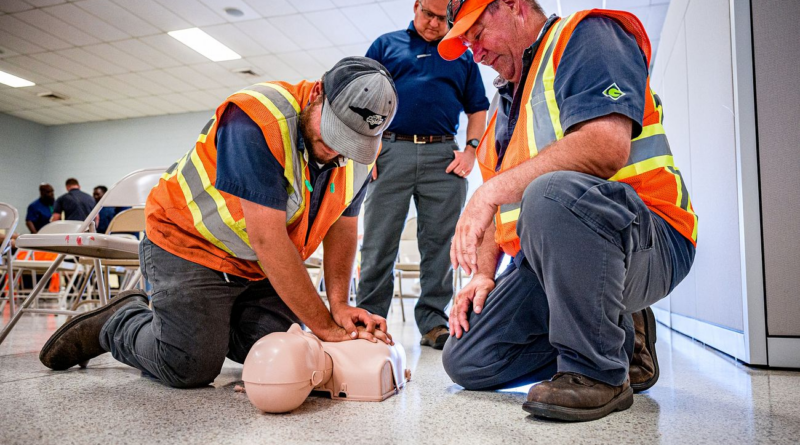Understanding the Importance of First Aid Training Courses
First aid training courses are pivotal in equipping individuals with essential life-saving skills, from minor injuries to critical emergencies. Beyond merely acquiring knowledge, these courses instil the confidence to respond effectively in diverse situations.
So, explore a first aid training course right away because recognising the significance of such training is necessary for cultivating a culture of safety and well-being within communities. It prepares individuals for unforeseen challenges and develops a sense of responsibility towards collective welfare.
Preparedness for Emergencies
Preparing for emergencies involves foreseeing potential risks and possessing the knowledge and abilities to respond efficiently when they arise. It gives individuals the assurance and ability to stay composed amidst pressure, evaluate the seriousness of the circumstance, and make resolute decisions.
From providing initial care to communicating with emergency services, this readiness ensures a timely and coordinated response, significantly improving outcomes for those in need. It serves as a cornerstone of emergency preparedness, empowering individuals to be proactive rather than reactive in crises.
Immediate Response
Immediate response is paramount in emergencies, where every second counts. It empowers individuals to act decisively, assess the situation, and apply appropriate interventions without hesitation.
Whether administering CPR to revive a cardiac arrest victim or applying pressure to staunch bleeding, these actions can be life-saving. Moreover, stabilising fractures or immobilising injured limbs prevents further damage and ensures the safety of the individual until professional medical assistance is available.
Promoting Safety Culture
Promoting a safety culture goes beyond individual skill acquisition; it entails creating a collective mindset focused on prevention and preparedness. It catalyses instilling this culture by raising awareness and fostering a sense of responsibility for one another’s well-being.
As more individuals become proficient in first aid, they contribute to a safer environment and inspire others to prioritise safety measures. This ripple effect strengthens community bonds and enhances overall resilience in adversity.
Empowerment and Confidence
Acquiring first aid skills instils a sense of empowerment and confidence in individuals. Knowing how to respond calmly and effectively in emergencies alleviates fear and anxiety, enabling swift action. This self-assurance is invaluable in crises and everyday life, where individuals feel more capable and prepared to handle unforeseen challenges.
Prevention of Complications
Properly administered first aid can prevent minor injuries from escalating into more severe complications. Individuals can minimise the risk of infection or further harm by promptly addressing issues, such as applying bandages to wounds or immobilising injured limbs. Additionally, early intervention can facilitate faster recovery and reduce the need for extensive medical treatment.
Compliance with Regulations
Many industries and organisations have regulatory requirements mandating first aid training for employees. Compliance with these regulations ensures a safe and secure working environment, reduces liability risks, and demonstrates a commitment to employee well-being. Moreover, trained personnel can effectively respond to workplace incidents, mitigating potential hazards and minimising disruptions.
Community Resilience
Communities with a high level of first aid training are more resilient in emergencies and disasters. In times of crisis, individuals equipped with life-saving skills can provide immediate assistance to those in need, contributing to a coordinated and effective response. This collective resilience strengthens community bonds and enhances overall disaster preparedness.
Continuous Learning and Improvement
First aid training is not a one-time event but an ongoing learning and improvement process. Techniques and protocols evolve, reflecting advancements in medical knowledge and emergency response practices. Regular refresher courses ensure that individuals stay updated on the latest procedures and maintain proficiency in life-saving skills.
Explore a first aid training course right away because the importance of this training cannot be overstated. By facilitating prompt reactions and fostering a culture of safety and communal resilience, these courses are essential for protecting lives and mitigating the effects of emergencies. By understanding the significance of first aid training and actively participating in such programs, individuals contribute to a safer and more prepared society.
